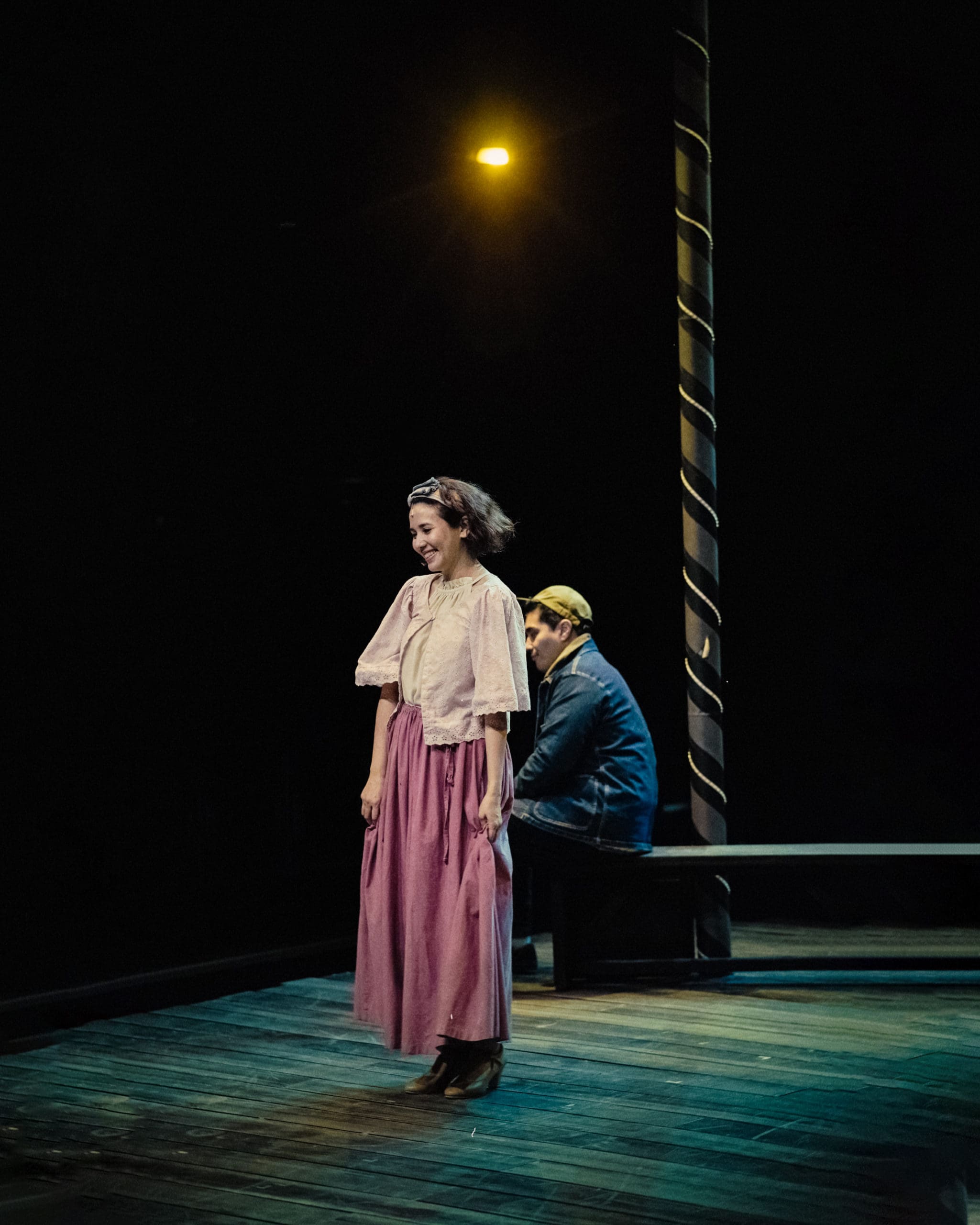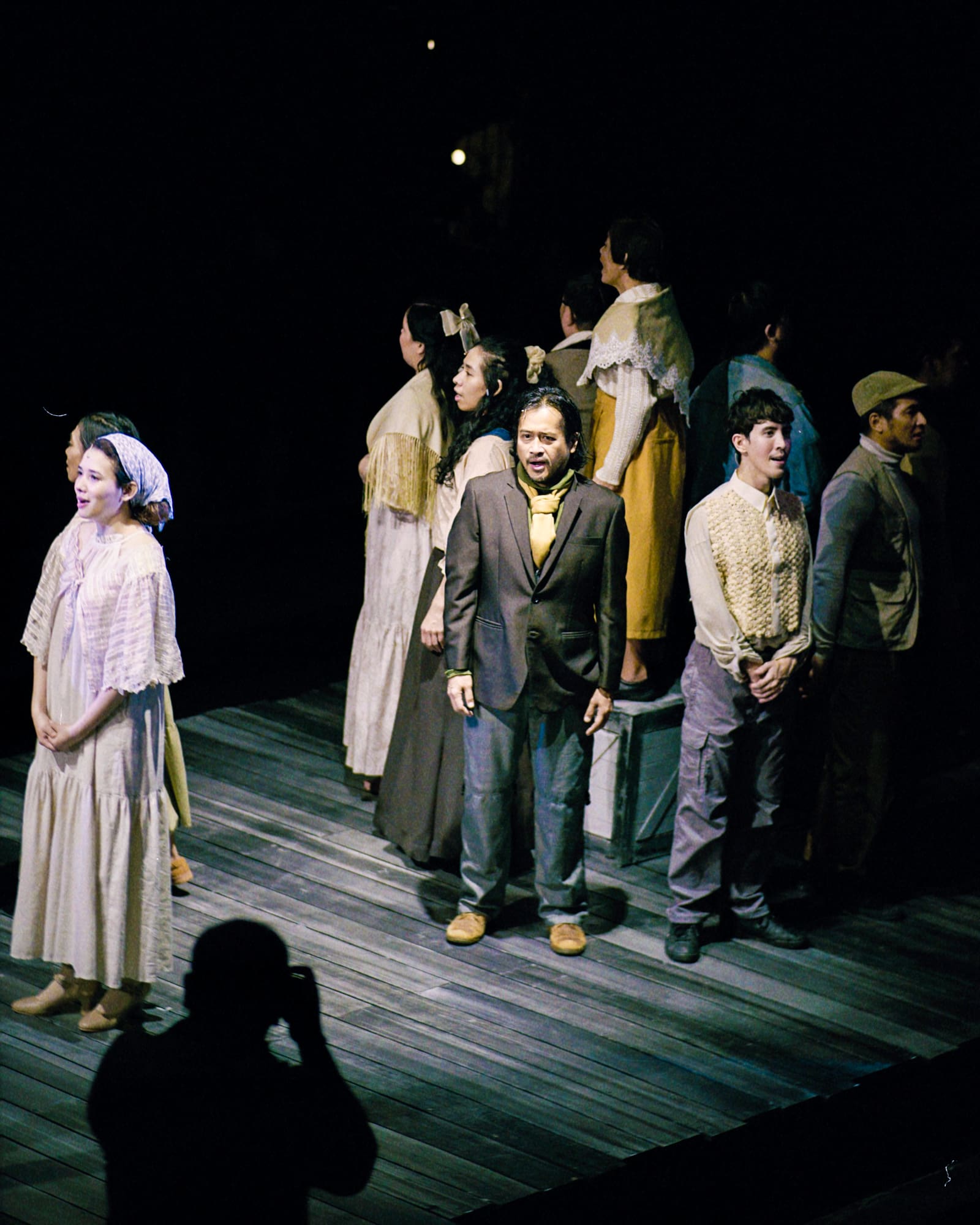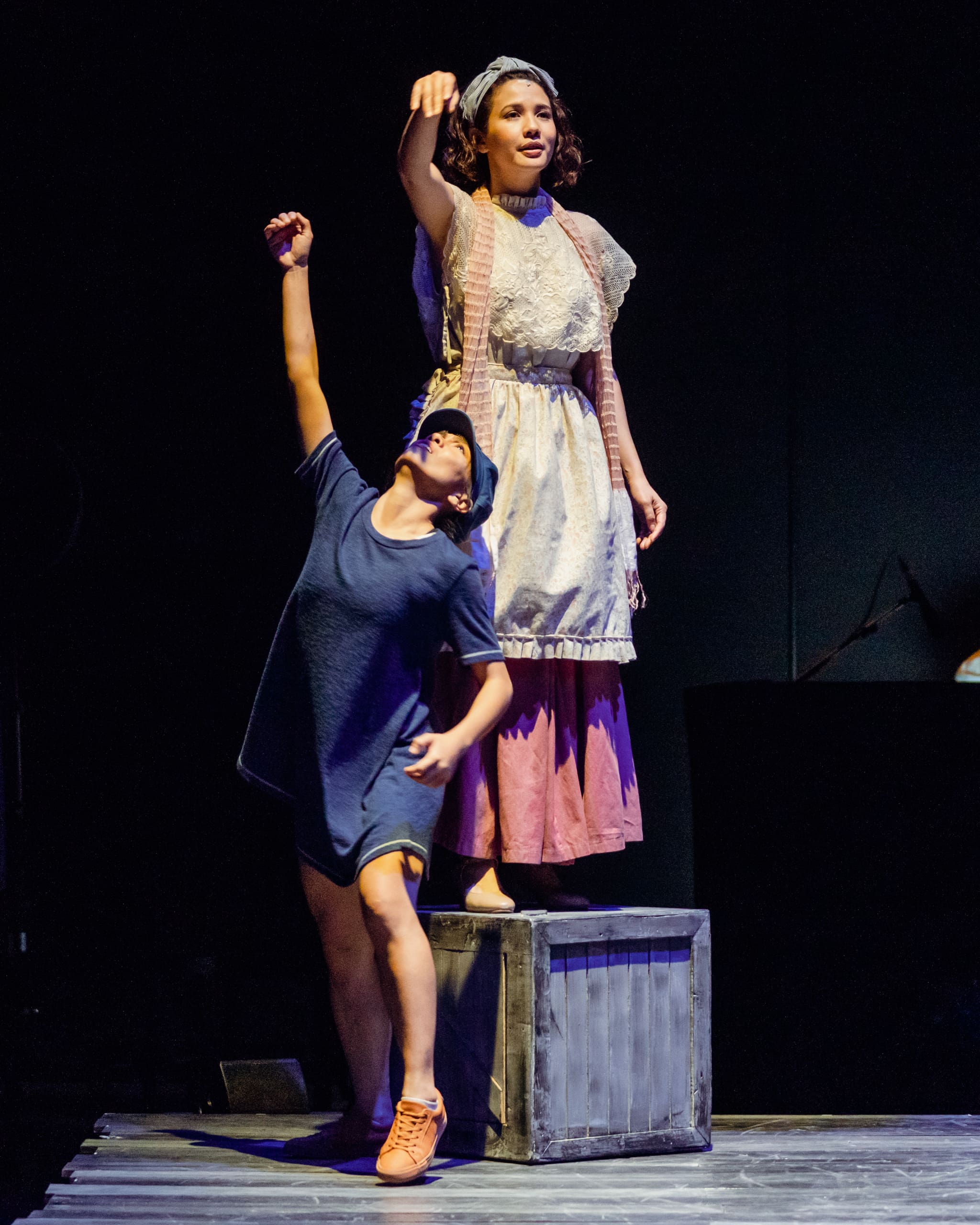Niña Sandejas
Along with director Toff De Venecia, the musical’s costume designer puts a new spin on the tale
Repertory Philippines is staging a modern revival of Carousel, the renowned Broadway musical depicting the tragic romance between a flawed carnival barker and a young woman who sacrifices everything for him. Performed at the Cultural Center Philippines’ Black Box Theatre, this recent re-staging stars Karylle Tatlonghari as Julie Jordan and Giancarlo Magdangal as Billy Bigelow.

Touted as one the greatest musical of the 20th century, the production has been awarded the New York Drama Critics Circle Award, the Lauren Olivier Award, and multiple Tony Awards with its beloved scores including “If I Loved You” and “You’ll Never Walk Alone.” Created by Richard Rodgers and Oscar Hammerstein II, this production was adapted from Ferenc Molnár’s 1909 play, Liliom and is the second collaboration of the Broadway duo after Oklahoma.
Ideas On Stage
“For this particular staging, we excavated what director Bartlett Sher calls ‘deep genre’ and paid closer attention to the underbelly of the show that sizzles beneath the music’s largesse,” director Toff De Venecia tells Vogue Philippines. “[t is the closest to an opera of R&H’s work] and is often glossed over in favor of a more romantic, nostalgic, and straightforward staging,”
As a theater-maker, the director and Congressman remarks that he is “always interested in presenting a kind of forum theater where ideas are discussed and conversations are brought out of the theater’s four walls.” For this revival, themes such as violence against women, gender inequality, misogyny, toxic masculinity, generational trauma, and social inequality were brought to light.
“In a post-‘Me Too’ era, we wanted to have a definitive stance on these issues, which translates to choices we made for this production, and then revisit the material through a contemporary lens—basically a 21st century test for a 20th century text,” the 36-year-old says.
“Finding new ways of styling old costumes or reworking vintage textiles was my approach to integrating circularity into this theater production.”
Jodinand Aguillon
Set in Maine at the start of the long depression of 1873, both Toff De Venecia and Jodinand Aguillon visualize a post-modern world that paid respect to the iconic production yet centered on present-day struggles.
“Costume was our way forward,” the lawmaker says, “and Jodinand Aguillon contributed significantly to the overall concept for production, given his proclivities as a creative.”
He adds that he loves how Aguillon infused the Filipino aesthetic into the costume landscape of Carousel, and “certainly the postmodern deconstruction of this classic which leans on the side of playful, self-aware and exacts influences from many different sources allowed for that.”
Paying Tribute
Aguillon created a 200-piece wardrobe featuring a mix of ready-to-wear, vintage, reworked items, and pieces from the wardrobes of the performers.
“I would attend rehearsals and observe the performers’ personal style,” Aguillon says. “Cuts they felt most comfortable in were important to making sure they not only looked the part, but felt their best.”
Handpicking pieces from the Repertory Philippines (REP) costume archive, he pays tribute to the legacy of REP’s costume designers and the artists that have previously worn them.
Finding a resemblance in Filipino and Hungarian folklore and fashion, Aguillon envisioned aspects of the panuelo, mantón de Manila, and traditionally woven textiles in this contemporary rendition of the play.
“To contextualize it into the world we’re living in, I wanted to trace its history,” he says. “My first reflex was to see if there were any parallels to Hungarian folk aesthetics [through] embroidery and textiles that mirror Filipino aesthetics.”
Aguillon drew inspiration from an antique folk costume scarf made in the early 20th century, vintage Hungarian Matyo shawls, and traditional women’s folk costumes from the Csángó Hungarian ethnic minority group from Romanian Moldavia.
De Venecia adds that Aguillon brilliantly-traced the consanguinity between the Hungarian aesthetic (since Carousel’s source material Liliom is set in Hungary) and the Hispanic-Filipino sensibility “so that even in the overt infusion of Filipino in scenes where Billy comes face to face with a chorus of female deities, there is a dramaturgical resonance and creative through-line uniting these disparate cultures, and even time periods.”

Neutral Yet Grounded
Found in varying shades of brown, cream, earthy greens with hues of worn-in denim, Aguillon demonstrates the beauty of lived-in garments through his costume design.
“The lighting punctuated the color stories [of the pieces],” he says. “I wanted to keep the color palette neutral, yet grounded.” Linking American workwear to Asian workwear, Aguillon used coffee, black tea, onion skins, soy sauce, deadstock and local dyes to reinvigorate old costumes.
Through ombre and dip-dye techniques, the costume designer honored the original silhouette of the garments by preserving them with salt from a farm in Pangasinan.
For the character of Carrie Pipperidge, vintage curtains were transformed into a wrap circle skirt, while a pillowcase was reinterpreted into a ruffled pinafore, reminiscent of Filipiniaña kimona attire. A second hand Philippines Airlines business class blanket was reimagined into a streamlined travel cardigan with a flame retardant jacquard weave.
“Finding new ways of styling old costumes or reworking vintage textiles was my approach to integrating circularity into this theater production,” Aguillon explains. “Toff’s incredible guidance and direction really set the tone for seeing and doing things differently throughout this process.”
Vintage Filipiniaña pieces are interwoven into the repertoire. Shapes and silhouettes that reflect traditional Filipino attire are mixed in with offbeat choices such as dyed, vintage Assumption graduation collars.
“This could very well be the first production of Carousel to incorporate things like arnis sticks, abanicos, and ‘good morning’ towels,” Aguillon says. “But the most undeniably Filipino thing about this production is the brilliant talent of all the performers on stage.”
Repertory Philippines’ Carousel runs until December 18, 2022 at the CCP Black Box, Tanghalang Ignacio Gimenez Theater, Pasay. Buy tickets here.






